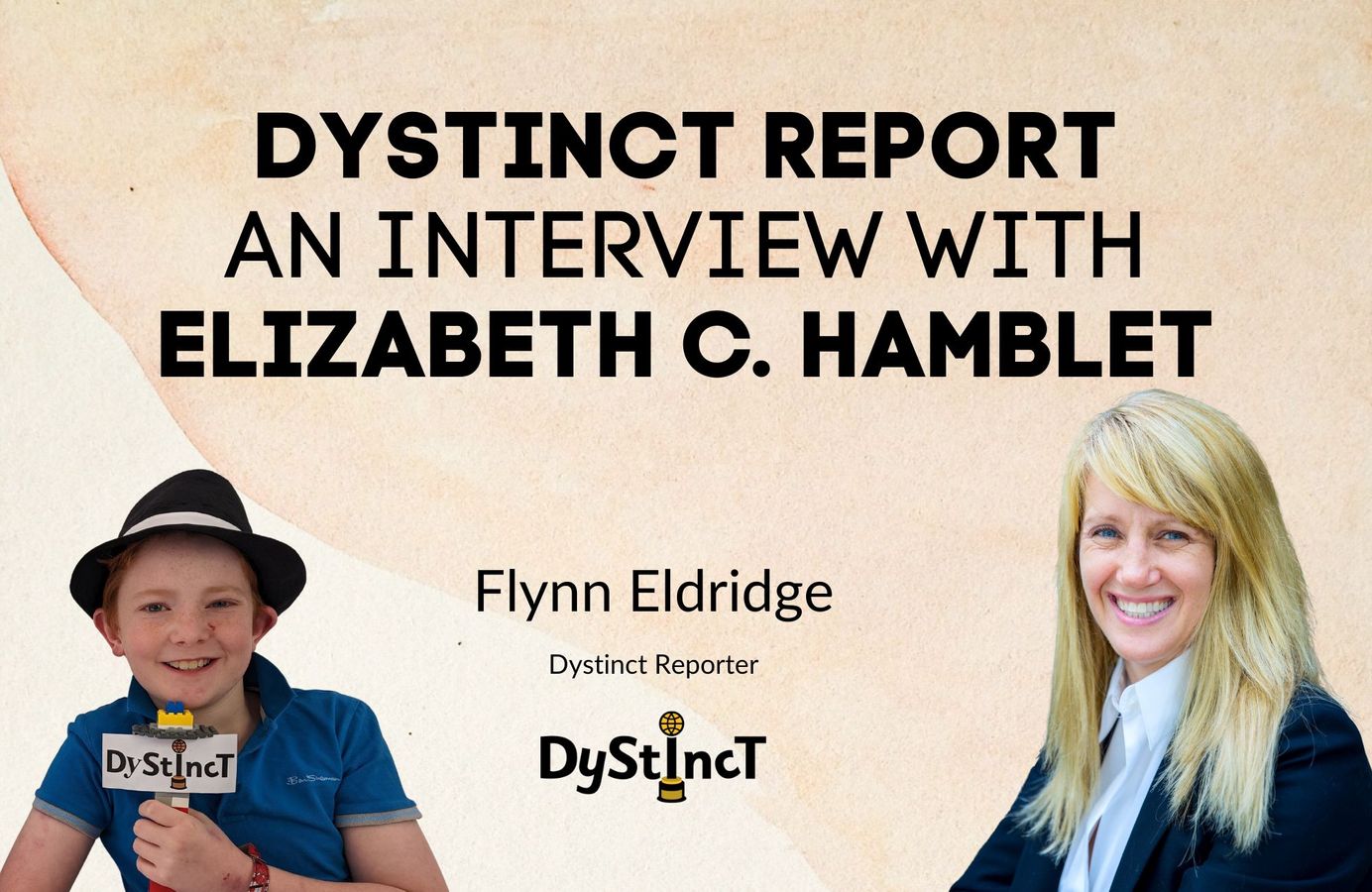
Issue 16: Dystinct Report – Flynn Eldridge’s Interview with Elizabeth C. Hamblet
Ten-year-old journalist Flynn Eldridge has a chat with learning disabilities consultant Elizabeth C. Hamblet, a recognized author and speaker. She offers advice and makes presentations based on her professional experiences drawn from her 20+ years as a college-level learning disabilities specialist.
Elizabeth C. Hamblet has worked both ends of the college transition. She began her career as a high school special education teacher and then began working at the college level in the late 1990s. She is now at her third university, working in a disability services office as a learning consultant.
In 2008, recognizing that too many people didn’t know about the changes awaiting students with disabilities at college, Elizabeth began offering programs to families and professionals on how to prepare students for the transition, speaking locally and at national conferences. In addition to being a requested presenter, she is also a contributing writer for Disability Compliance for Higher Education, and and her work has appeared in numerous other journals and online platforms.
The Interview
The Interview
Dystinct reporter Flynn Eldridge has a chat with Elizabeth about her work and new book.
Excerpts from the Interview
Excerpts from the Interview
Tell us about your background as a Learning Consultant.
I started this part of my career as a high school special education teacher in the mid-1990s. At one point, I had a part-time job, and I started working at a college as a learning disabilities consultant there. And that was work I really enjoyed. I'm now at the third university I've worked in, in about 25 years. I get to meet one-on-one with students who are registered with our office, and I help them with things like time management, organisation, reading and writing strategies, etc.
What led you to become an author?
As I started working at the college level, I realised that when I was trained to work at the high school level, there were things that I did not know about how the laws change at college and how that affects things like accommodations. I had a real interest in sharing that information so that students could get the right preparation, and I thought a book was a good way to do that.
Have I got it right that college is also what some countries call university in Australia? Some colleges are years 10 to 12. What is your definition of college?
I love this question, and I tried to do some homework and look up the difference between a university and a college in America. Just to be clear, in the US, teenagers attend what we call high school, grades nine through 12.
Tell us more about your book Seven Steps to College Success: A Pathway for Students with Disabilities.
I try to make a really logical progression for readers, and it's intended for parents, professionals, and for students who really want to learn a lot. I find that sometimes students just want the basics. They don't want as much detail as the book provides. But, I talk about the differences in laws that apply at the college level here in the US and what kinds of changes folks might recognise. And then talk about how students get access to accommodations at the college level because that's also different. What kinds of academic and non-academic skills do they need for success. We talk a little bit about what students might want to think about when they're looking at colleges. Also, I speak to some Deans of Admissions at colleges to see what they think about students talking about their disability in their college applications and how they view those things. And then the last bit is all about the kinds of accommodations students might or might not commonly expect to have approved.
This post is for paying subscribers only
SubscribeAlready have an account? Log in


